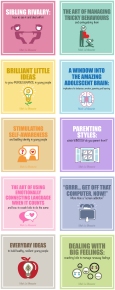Generation Next; articles on Dyslexia and Depression
Dyslexia - stress amongst school aged children with dyslexia by Alexander-Passe.pdf
All school children experience stress at some point in their school
careers. This study investigates whether dyslexic children, by way of
their educational and social difficulties, experience higher levels of
stress at school. The School Situation Survey was used to investigate
both the sources and manifestations of stress amongst dyslexic children
and non-dyslexic sibling controls. Samples were broken down by
gender, age and the size of families. Results suggest significant
differences between the groups, with dyslexics in academic years 3–5
experiencing the highest stress levels, specifically in interactions with
teachers, worries over academic examinations (SATs) and performance
testing, causing emotional (fear, shyness and loneliness) and
physiological (nausea, tremors or rapid heart beat) manifestations.
![]()
Dyslexia and psychosocial functioning.pdf
Individuals with dyslexia may have lower self-esteem and exhibit more emotional and behavioural
difficulties than those without reading problems. However, the nature of any relationship between
self-esteem and psychopathology remains unknown. This exploratory study assessed levels of self-esteem
using the Self- Perception Profile for Children (Manual for the Self-Perception Profile for
Children. University of Denver, CO: Denver; 1985) and psycho-social adjustment using the
Strengths and Difficulties Questionnaire (J. Child Psychol. Psychiatry, 1997;
38: 581-586) and examined child and parent understanding, attitudes and the perceived
impact of reading difficulties on daily life.
![]()
Dyslexia associated with negative self-worth.pdf
This paper will provide an overview of research in the past 20 years
into the relationship between dyslexia and various aspects of selfperception,
including self-concept, self-esteem, self-efficacy and
locus of control. Problems are identified relating to the
measurement of some of the most widely used constructs, as is the
need for more precise identification of key variables relating to
them. Critical issues concerning the assumptions that can be drawn
from largely correlational data are highlighted also.
![]()
Dyslexia coexisting problem behaviour.pdf
The aim of the present study was to obtain more in-depth
knowledge of behavioural problems in children with severe
dyslexia. Dyslexia is a developmental disorder characterised
by deficits in the sub-skills of reading, word identification
and phonological decoding (Vellutino and Fletcher, 2005).
Children with dyslexia also have impaired spelling (Romani,
Olson and Di Betta, 2005; Vellutino and Fletcher, 2005) and
problems with rapid automatised naming (RAN) (Willburger,
Fussenegger and Moll et al., 2008;Wolf and Bowers,
1999; 2000).
![]()
Dyslexia depression and anxiety college.pdf
Today’s college students report more mental health problems
while pursuing their postsecondary education than students
have reported in the past. Data from the most recent National
Survey of Counseling Center Directors indicated that 95%
of directors of college counseling centers perceived the number
of students with mental health problems to have increased
in recent years (Gallagher, 2009). Depression and anxiety
are two commonly co-occurring mental health problems experienced
by college students, and the rates at which students
report these problems have increased drastically over the past
decade
![]()
Dyslexia How dyslexia teenagers cope - Alexander-Passe.pdf
Research into how dyslexics cope and the effects of their coping has
received little attention in the 100 years since dyslexia has been
recognized. Why is this? Well it is not an easy area to investigate,
partly as most qualitative studies have looked only at coping
strategies of specific dyslexics. These are individual and are
unsuitable for generalizations to larger populations.
This study takes a different approach to the problem. By using
three standardized tests for self-esteem, coping and depression, a
picture is painted of how teenage dyslexics cope and whether this
affects their self-esteem and depression.
![]()
Dyslexia internalising.pdf
There has been some controversy in the literature over whether or not
children with dyslexia are more likely to experience internalizing disorders
such as depression or anxiety. Many clinicians anecdotally report
that children with dyslexia or reading disabilities often have difficulty
with behaviors related to these disorders, but the research has been
somewhat equivocal.
The studies of the emotional characteristics of children with learning
disabilities have typically focused on children with dyslexia or reading
disabilities, although several studies have described the socio-emotional
functioning of children with other types of learning disabilities.
![]()
Dyslexia psychiatric comorbidity.pdf
This study investigated the association between reading disability (RD) and internalizing
and externalizing psychopathology in a large community sample of twins with (N 209) and
without RD (N 192). The primary goals were to clarify the relation between RD and
comorbid psychopathology, to test for gender differences in the behavioral correlates of RD,
and to test if common familial in¯uences contributed to the association between RD and
other disorders. Results indicated that individuals with RD exhibited signicantly higher
rates of all internalizing and externalizing disorders than individuals without RD. However,
logistic regression analyses indicated that RD was not signicantly associated with symptoms
of aggression, delinquency, oppositional defiant disorder, or conduct disorder after
controlling for the signicant relation between RD and ADHD.
![]()
Dyslexia severity of emotional problems.pdf
Children and adolescents with poor reading skills
face a variety of challenges in their lives, and may be
at risk for emotional and behavioral problems. In some
cases, behavioral or emotional problems may be triggered
by the stress of difficulties in school, or they may be
a contributing factor to poor achievement in school or
to learning difficulties (Rutter & Yule, 1970). Severity
of behavioral and emotional problems also may be associated
with the diagnosis of Attention Deficit Hyperactivity
Disorder (ADHD) (Connor et al., 2003), which
commonly co-occurs with reading problems (Willcutt &
Pennington, 2000a). Nevertheless, many of the studies
examining these issues have focused on youth in clinical
settings, or youth receiving special educational services
rather than youth who have been clearly defined as
poor readers in non-clinical settings, and have focused
on emotional/behavioral problems at only a single point
in time, precluding closer examination of the course of
symptoms over time.
![]()
Dyslexic teenagers coping.pdf
Research into how dyslexics cope and the effects of their coping has
received little attention in the 100 years since dyslexia has been
recognized. Why is this? Well it is not an easy area to investigate,
partly as most qualitative studies have looked only at coping
strategies of specific dyslexics. These are individual and are
unsuitable for generalizations to larger populations.
This study takes a different approach to the problem. By using
three standardized tests for self-esteem, coping and depression, a
picture is painted of how teenage dyslexics cope and whether this
affects their self-esteem and depression.
![]()
Social and Emotional Problems Related to Dyslexia (website)
Research indicates that dyslexia is caused by biological factors not emotional or family
problems. Samuel T. Orton, M.D. was one of the first researchers to describe the emotional
aspects of dyslexia. According to his research, the majority of dyslexic preschoolers are
happy and well adjusted. Their emotional problems begin to develop when early reading
instruction does not match their learning style. Over the years, the frustration mounts as
classmates surpass the dyslexic student in reading skills. Recent research funded by the
National Institute of Health has identified many of the neurological and cognitive
differences that contribute to dyslexia. The vast majority of these factors appear to be
caused by genetics rather than poor parenting or childhood depression or anxiety.
![]() http://www.ldonline.org/article/19296/
http://www.ldonline.org/article/19296/
The Time Magazine The New Science of Dyslexia.pdf
When Sean Slattery, 17, looks at a page of text, he can see the letters.
He can even tell you the letters' names. He can even tell you what sounds
those letters make. But it often takes a while for the articulate high school
student from Dimi Valley, California, to tell you what words those letters
form. "I see a wall," he says. "I see hurdle I have to get over." Some
words are easier for Sean to figure out than others. "I can get longer words,
like electricity," he says. "But I have trouble with shorter words, like
four or year."
Slattery has dyslexia, a reading disorder that persists despite good schooling
and normal or even above-average intelligence. It's a handicap that affects
up to 1 in 5 school children.
![]()
What does the dyslexic person feel? (website)
Anxiety is the most frequent emotional symptom reported by dyslexic adults. Dyslexics become
fearful because of their constant frustration and confusion in school. These feelings are
exacerbated by the inconsistencies of dyslexia. Because they may anticipate failure, entering
new situations can becomes extremely anxiety provoking.
Anxiety causes human beings to avoid whatever frightens them. The dyslexic is no exception.
However, many teachers and parents misinterpret this avoidance behavior as laziness. In fact,
the dyslexic’s hesitancy to participate in school activities such as homework is related more
to anxiety and confusion than to apathy.
![]() http://dyslexiahelp.umich.edu/parents/...
http://dyslexiahelp.umich.edu/parents/...












